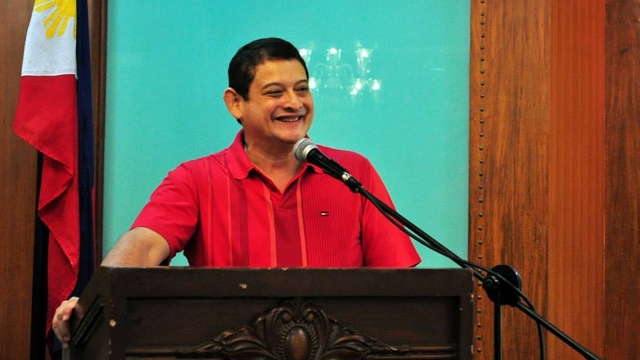SUMMARY
This is AI generated summarization, which may have errors. For context, always refer to the full article.

MANILA, Philippines – The author of the crowdsourcing bill admits anonymity is a tough issue in soliciting netizens’ feedback on proposed laws.
Sen Teofisto “TG” Guingona III said allowing anonymous posts is one of the issues that have to be ironed out when the 16th Congress takes up his bill.
This early, though, Guingona said he prefers that those who post comments on bills be asked to leave their names.
“I am more inclined to ensure accountability, especially if we have questions about your posting. It is better for you to give your name so that if I have questions about your posting, I can ask you about it. I will not be able to find you if you give a pseudonym,” Guingona said in an interview on Tuesday, July 9.
“In Finland, they have a crowdsourcing law, but they have a national ID law. That’s something we have to refine,” he added.
Last week, Guingona again filed his crowdsourcing bill, which allows social media users to participate in the lawmaking process, from the filing of the bill, through initial public consultations, debates, and before the bill’s approval.
The senator said that there are mixed views on the issue of anonymity.
“On one hand, some are saying there’s no need for identity. The strength of the idea posted is what’s important. On the other hand, there are those saying that we need accountability from citizens. You have to be accountable for your post and also so that we can get back to you.”
Guingona said the issue will have to be discussed in the course of fine-tuning the bill.
Bicam report open for comments
He said that aside from allowing more people nationwide to participate in lawmaking, the bill will let Internet users give their inputs even on the bicameral conference committee reports.
Guingona called it one of the innovations of the measure.
“Here it is stated that once the bicam report is transmitted to Malacañang for [the President’s] signature, Malacañang will be bound to post it again on the wall or the website for 5 days. So that for 5 days, the citizens can again give comments and suggestions.”
Guingona said Malacañang will given at least 3 days to go over the online feedback as a way of consulting citizens.
“Marami kasing nagsasabi na pagdating ng bicam madaming singit-singit. Hindi pinag-usapan sa House of Representatives, hindi pinag-usapan sa Senado pero nandoon sa final bill. This mechanism enhances democracy and people participation.”
(Many say that in the bicam, there are many provisions that are inserted. This was not discussed in the House of Representatives or in the Senate but it’s in the final bill.)
Guingona said he thought of the bill following a forum on the Cybercrime Prevention Act of 2012, which netizens, media organizations, and human rights groups questioned before the Supreme Court.
He said in the forum, the law’s critics were disappointed that they were not given a chance to participate in its crafting.
Lawmakers said many of the questionable provisions were inserted during the bicameral conference committee deliberations.
The high court has yet to rule on the cybercrime law, which allegedly violates freedom of expression and freedom of speech, and gives the government too much power over netizens. Guingona was the lone senator who voted against the law.
Guingona said he will open up his crowdsourcing bill for online comments starting July 24 to be true to the objectives of the measure.
“We will advertise it online. We will say we have a crowdsourcing law, these are the objectives, take a look. For one week, we will have this open for people to participate.”
Better than cybercrime law
Guingona also commented on other Internet-related bills pending in the Senate.
He welcomed the filing of Sen Miriam Defensor Santiago’s Magna Carta for Philippine Internet Freedom (MCPIF), which seeks to establish a framework for information and communication technology (ICT) in the Philippines.
Asked if it was better than the cybercrime law, Guingona said, “Most definitely, because this is rights-based rather than restricting people’s right to express themselves.”
The senator was also asked about Sen Nancy Binay’s Electronic Violence Against Women (E-VAW) bill.
Binay’s bill aims to protect victims of online violence from “further harm” against perpetrators who are their close or distant relatives, a former spouse or partner, or an ex-boyfriend or ex-girlfriend.
Guingona said, “That’s (electronic violence) one thing we’ve always been grappling with even with cyber bullying but it’s not easy to craft something about. We are still studying how to do that.” – Ayee Macaraig/Rappler.com
Add a comment
How does this make you feel?
There are no comments yet. Add your comment to start the conversation.